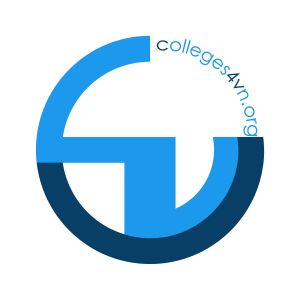Common Application
“Look! It’s Hung’s younger brother. He must be really good!” hollered a student as I was walking down the school hallway. Every time I walked down the same hallway, I would hear these types of comparisons. Everyone in my school seemed to know me as a result of my successful older brother. Always at the top of his class, he received several awards for his exceptional academic record. Hung was awarded a scholarship to attend summer camp in the U.S., and scored the highest marks in the National Collegiate Entrance Exam. Today he is studying at one of the top American universities. Thus, I often reminded myself that I would one day be just like him.
Although I was excited by the challenge of mirroring his accomplishments, there were pluses and minuses along the way. Trying my best to thrive as he did, I was encouraged to study much harder. But when faced with roadblocks, I often gave up too easily. If my brilliant brother could not solve a particular dilemma, it seemed impossible for me to even try. That thought kept holding me back, and as a result, I became a mediocre student during the first three years of secondary school.
After reaching a low point, my mother gave me some words of advice that completely change my way of thinking. When she noticed my frustration one day, she said: “I can see that you are trying to be like your older brother. But I think you are going in the wrong way. Do not pretend to be anyone else, just be yourself. What you are trying to do may help you be as successful as your brother, but you can be greater than him. The image of you brother does not encourage you, but it is holding you back.” I became even more confused after listening to her words. After some reflection, I realized the pitfalls of modeling myself after him. In the process of pretending to be like Hung, I managed to lose my individuality.
Soon after considering my mother’s advice, my outlook on life began to change. When students compared me to my brother as I walked through the hallway, I re-evaluated what they were saying. They did not know me because of my own skills and talents, but rather, they used me as a frame of reference to my brother. It soon occurred to me that many of them did not even know my name. I wanted to be recognized for my own talents and individuality. Although I identified the source of my frustration, it now became time to prove my skills to everyone else.
Changing my attitude helped me evolve as a person and develop my unique abilities. I soon realized that English was my true strength. Thus, while Hung received many City’s Awards for the Best Students in the field of Chemistry, I would rather try English. It wasn’t easy for a student in a Chemistry class like me as maintaining good Chemistry grades had already taken a lot of time. But I was willing to accept this challenge, to find the real “me”, to find my own way. I started to go to the library more often and buy more advanced English books. Then it came to many sleepless night studying vocabularies and doing exercises. But whenever thinking of the future ahead of me, the future that I am so eager to discover, I often told myself to keep trying. Finally, all the achievements I had earned have proven that I was going in the right way.
After I stopped aspiring to reach my brother’s potential, it became easier to display my own set of skills. Following my mother’s advice, I no longer feel constrained by pressures, and realize that it is possible to even surpass my brother’s achievements. Rather than being Hung’s younger brother, I am now comfortable being addressed by my own name: LONG.




Bình luận
Vui lòng đăng nhập để comment